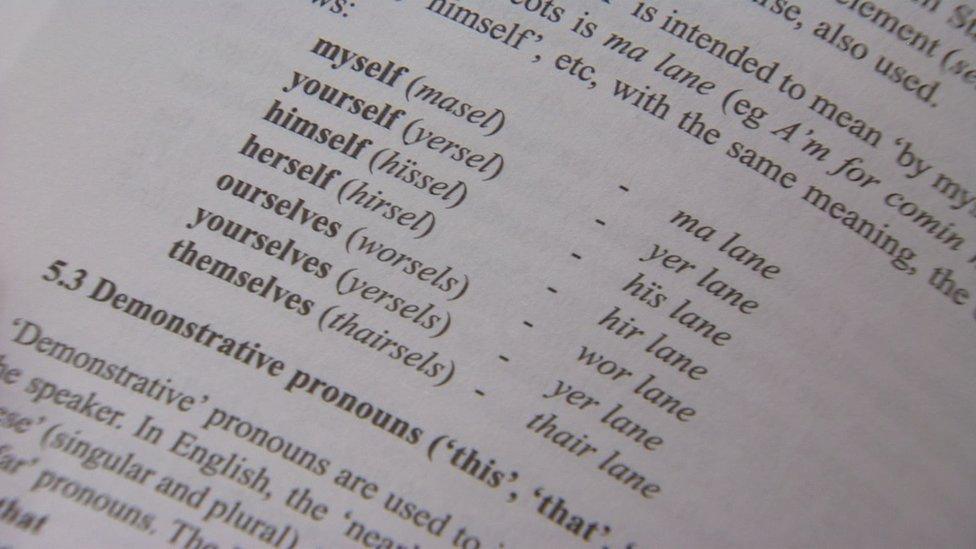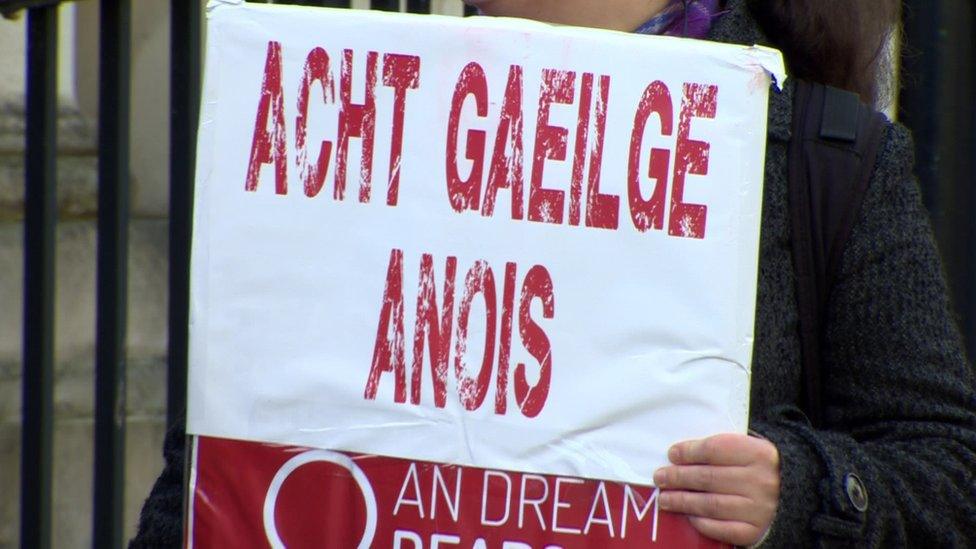Irish outstrips Ulster-Scots in Stormont language translation spend
- Published

Public bodies have spent over 30 times more on the translation of documents into Irish than into Ulster-Scots via a "translation hub" set up by the Stormont Executive.
Over £30,000 has been spent by public bodies for Irish language translations compared to £953 for Ulster-Scots.
But more documents are likely to have been translated into Irish without a charge to public bodies.
That is because of the hub's in-house Irish translation team.
It does not have an equivalent in-house team for Ulster-Scots.
The department told BBC News NI it planned to "employ an official with Ulster-Scots translation experience in the coming months".
Level of demand
The Irish and Ulster-Scots translation hub was one of the commitments on language and culture in the New Decade, New Approach (NDNA) agreement.
It committed the executive to provide language translation services for its nine departments, "arms-length bodies, local government and public bodies".
The translation hub is run by the Department for Communities and provides written translations for public bodies - including medical, health or legal documents - and proofreading.
It began operation in April 2021.
In a statement in response to questions from BBC News NI, the department said it had considered a number of options so that the translation hub would provide the best service and value for money.

The New Decade, New Approach document was published in 2020
"It was unclear what level of demand for Ulster-Scots translations the hub would face following going live, however, historically demand for Ulster-Scots translations was low," the department said.
"Given this uncertainty the hub was set up with a hybrid model of service delivery, which included an in-house translation team for Irish and access to a contractor providing Ulster-Scots written translations.
"When the translation hub cannot complete a translation in-house due to lack of capacity, the hub will identify a contractor to undertake the work and the public bodies will be charged accordingly.
"Public bodies are not charged for any work undertaken by the in-house Irish translators, but are charged when demand for in-house Irish translation exceeds capacity."
The department specified how much public sector organisations had been charged for the translation of documents into Irish and Ulster-Scots in the 10 months since the translation hub began operation.
Public bodies had been charged £953.21 for Ulster-Scots translations and £30,342.32 for Irish language translations.
However, the department also said that it expected that demand for Ulster-Scots translation would increase.
"Following a six-month review of operations, it was recommended that in the longer term, as demand for Ulster-Scots translation develops, the hub should employ an in-house Ulster-Scots translator," the department said.
"This bid has been included in the current draft budget.
"It is hoped that the hub will employ an official with Ulster-Scots translation experience in the coming months.
"Subsequent to this appointment public bodies will not be charged for Ulster-Scots translation undertaken by this individual.
"Given the current demand for Ulster-Scots translation, it is felt that this would represent better use of public funds."
The government has previously said it would progress language legislation through Westminster if it had not made progress at Stormont.
A political row over the title of the new commissioner for Ulster-Scots is being partly blamed for the delay, BBC News NI understands.
Last month, Northern Ireland Office ministers said they still hoped to bring the legislation to Westminster before the assembly election in May but could not give a definitive timeline.
- Published24 September 2021

- Published16 November 2021

- Published9 February 2022
